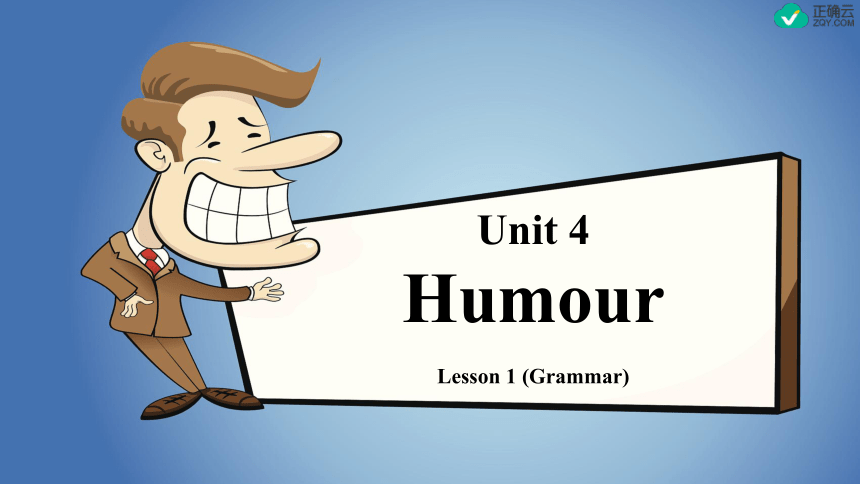(
课件网) Unit 4 Humour Lesson 1 (Grammar) Learning Objectives PART. 01 Understand the daily study and life of British middle school students by watching videos. Based on your own daily study and life, compare the study and life in Chinese and British schools, and find out the similarities and differences between the two. Talk about your first impression of high school life, and have a preliminary perception of the study and life in the senior high school stage. Learning Objectives Identify and use continuous tenses (present perfect continuous, past perfect continuous, future continuous). Analyze sentences from stories to determine tense functions, complete sentences with appropriate tenses, and apply them in discussions about jokes/humour. Explore how language (via continuous tenses) shapes humorous narratives. Understand that cultural humour often relies on precise tense usage to convey timing, duration, and context, reflecting how different cultures use language to create and appreciate jokes. Analyze sentences to distinguish continuous tense types, interpreting their impact on meaning (e.g., duration, completion). In pair work, apply continuous tenses to rewrite or invent jokes, innovating within grammatical and humorous frameworks to personalize content. Use “grammar-in-context” strategies to master continuous tenses. By independently analyzing tenses, completing writing tasks, and reflecting on joke structures, students take ownership of learning. Understand the daily study and life of British middle school students by watching videos. Based on your own daily study and life, compare the study and life in Chinese and British schools, and find out the similarities and differences between the two. Talk about your first impression of high school life, and have a preliminary perception of the study and life in the senior high school stage. Teaching Focuses and Anticipated Difficulties Identify and use continuous tenses (present perfect continuous, past perfect continuous, future continuous) correctly, and apply them in discussions about jokes and humour. Distinguishing different continuous tenses, understanding their impact on meaning, and using them to invent or rewrite jokes. Lead-in PART. 02 What tense is mentioned in this song Grammar PART. 03 Pair Work Read the following sentences from Story C. Discuss which continuous tense (present perfect continuous, past perfect continuous, future continuous) is used in each sentence. 1. Everything had been going wrong for him. 2. Well, I've been having a bit of a crisis. 3. This time next week, I'll be arriving in New York. past perfect continuous present perfect continuous future continuous Continuous tenses (进行时态) 一、现在完成进行时 1. 构成 由“have/has been +动词的现在分词”构成,第三人称单数用 has,其他人称用 have。 2. 用法 (1)表示从过去开始一直持续到现在的动作,该动作在说话时仍在继续进行,可能还要继续下去,也可能刚刚结束。这个时态常和 ... ...

